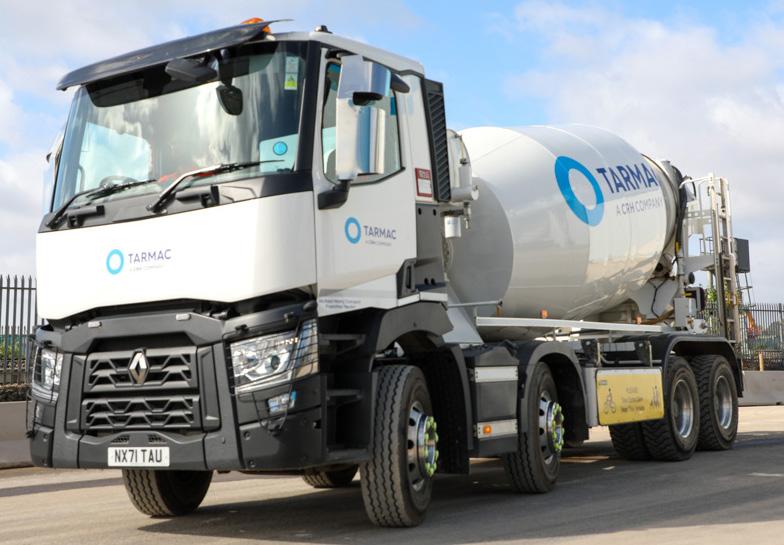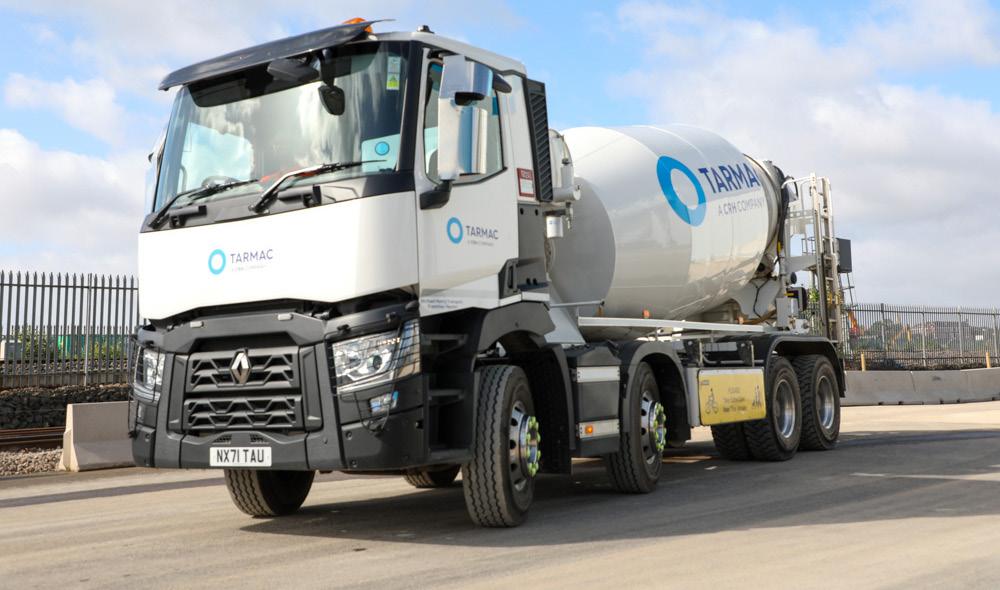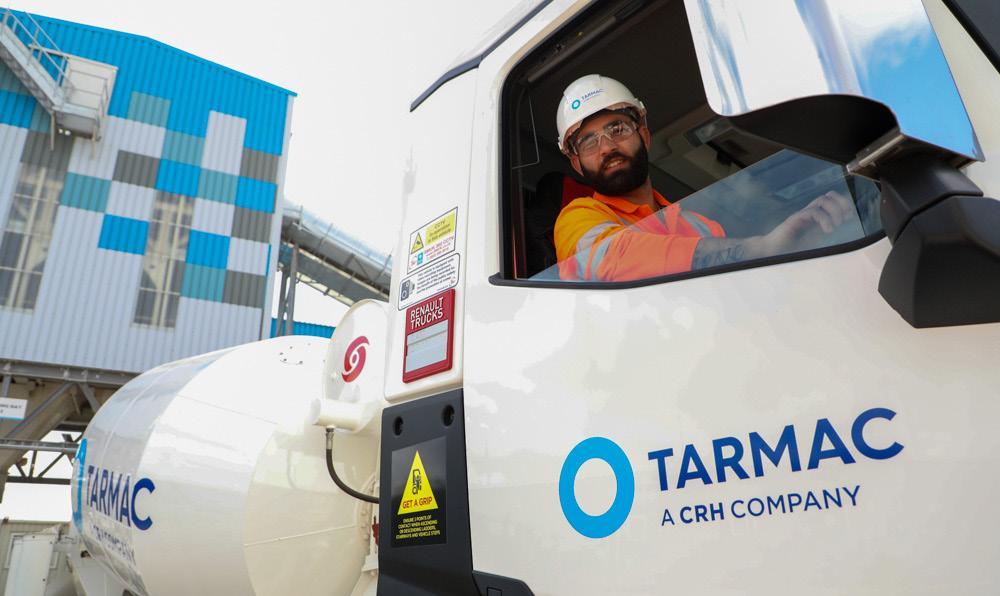
4 minute read
Specialist Vehicles
Specialist Vehicles Eliminating emissions with an electric mixer truck
Tarmac has placed an order for a battery electric mixer truck as part of its commitment to net zero. GreenFleet caught up with Ben Garner, low carbon logistics lead at Tarmac, to find out more
Tarmac has placed an order with Renault Trucks for a battery electric mixer truck as part of the company’s commitment to net zero. Due to be delivered in Autumn 2022, the electric mixer will work at Tarmac’s Washwood Heath site in Birmingham, supplying construction materials to customers across the West Midlands. GreenFleet caught up with Ben Garner, low carbon logistics lead at Tarmac, to find out more.
What do you anticipate will be the additional benefits of operating an electric mixer, aside from zero emissions?
Safety is a major benefit. Battery electric mixer trucks have a lower centre of gravity. Coupled with greater drum control, there is a reduced risk of rollover.
The electric mixer also has reduced noise and vibration, giving a better environment for our drivers to work in.
What’s more, the company will benefit from lower operating costs – the high price of diesel makes the cost model compelling, although the higher purchase cost is a challenge.
We operate in primarily urban areas and the eMixer allows us to deliver to our customers in towns and cities covered by all known current and future emissions regulations.
We also buy fully zero carbon renewable electricity, so as the truck is charged on-site it will operate as a zero carbon solution.
Battery electric trucks only work if they can carry out the work required. In partnership with Renault & TVS, we fitted sensors to a mixer truck operating out of a concrete plant in Coventry to understand work load and energy draw from the drum over a three month period. This data has enabled TVS and Renault to validate that the truck can complete a daily shift on a single charge.
What are the challenges you have come across so far and how are they being resolved?
One challenge was the high purchase cost. This has been offset on a total life basis by the lower operating costs, but issues like residual value at end-of-life remain relative unknowns.
What are the charging capabilities of the electric mixer? Do you have charging facilities onsite?
With most concrete being delivered during the day, we have sufficient time to charge the truck on-site at Washwood Heath in 8-10 hours overnight with a 22kW AC connection. The electric mixer truck has reduced noise and vibration, giving a better environment for the drivers to work in
Sponsored by Specialist Vehicles

This is fine for one truck, but power capacity into sites will need to be considered as part of any wider electrification plans.

What is Tarmac’s Supplier Innovation challenge and Supplier Sustainability Week?
Our Supplier Sustainability Week is an opportunity for our suppliers to learn about and collaborate in Tarmac’s direction of travel around decarbonisation.
The Innovation Challenge is an invitation to suppliers to present innovative solutions to decarbonise Tarmac’s supply chain. In 2020/21 Renault & TVS combined to present the eMixer proposal to us which covered the full solution of the vehicle and drum design.

Have you electrified other areas of your fleet? Or used any other alternative fuels?
We have taken the EV100 pledge, with a commitment for all our company cars and light vans to be zero emission by 2030. Tarmac is now rolling out electric company cars only, unless there is a valid reason why an employee might need a diesel/petrol vehicle. This will go a big way in meeting that target.
We’ve been working alongside fuel technology specialist partner SulNOx Group on a trial as part of our ongoing commitment to reduce our carbon footprint across our nationwide fleet of Heavy Goods Vehicles (HGVs).
The unique SulNOxEco fuel conditioner is an advanced fuel additive made from natural, biodegradable ingredients shown to improve fuel efficiency and reduce the production of harmful emissions, including CO2 and fine particulate matter.
The innovative product is being used over a three-month period on 18 selected vehicles – including mixer trucks, tipper trucks and articulated lorries – at two of our Hopkins concrete plants. During this time, fuel consumption and greenhouse gas emissions will be carefully monitored to identify savings. The expectation is that this solution will improve fuel efficiency – with the potential to reduce carbon by up to ten per cent.
We are also conducting HVO trials on our trains, mobile plant and trucks.Electric trucks only work if they can carry out the work required. In partnership with Renault and TVS, we fitted sensors to a mixer truck operating out of a concrete plant in Coventry to understand work load and energy draw from the drum over a three month period. This data has enabled TVS and Renault to validate that the truck can complete a shift on a single charge.
What is Tarmac’s overall sustainability goals for its fleet?
We are part of Logistics UK’s commitment Route to Net Zero, which pledges to decarbonise as quickly and effectively as reasonably possible.
We are also currently exploring technologies in preparation for wider uptake. L
FURTHER INFORMATION





